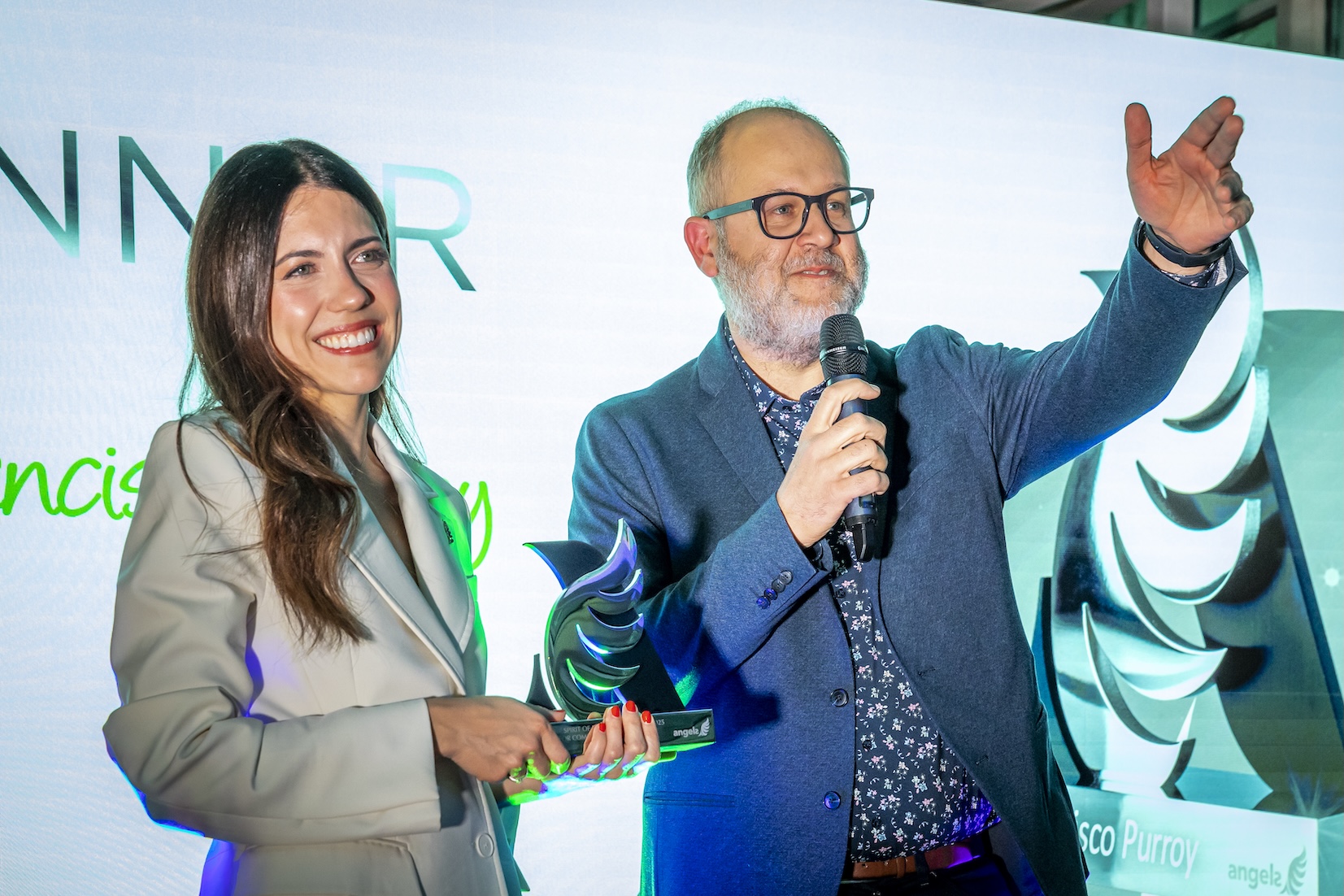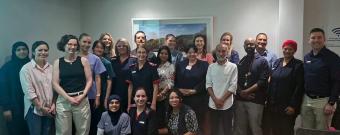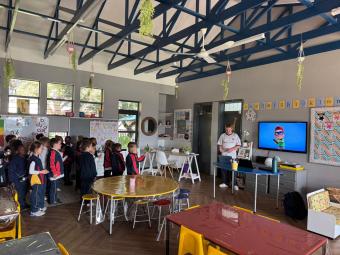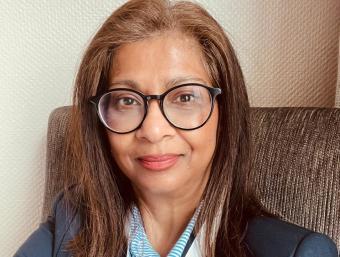
Dr Francisco Purroy remembers the ride home on the Barcelona Metro after he treated his first stroke patient with thrombolysis. The third-year resident at The Vall d'Hebron University Hospital, alone on call when the patient arrived, had made the right decision and watched his patient recover within the hour. Leaving the hospital, he says, “I remember that feeling of, okay, I have done something that was special for that person.”
He’s never lost that feeling. Even though you only ever do something for the first time once, the same intensity and eager enjoyment accompany his work more than 20 years later.
For nearly all these yearshe has lived and worked in the same small city where he grew up and where he now raises two teenagers and an eight-year-old. Lleida (population 140,000) is the kind of city that tourists pass through on their way to more famous Catalan cities like Barcelona, Girona, and Tarragona. It’s a no if you like beaches, a yes if you like mountains and history.
But while Dr Purroy’s professional life may have brought him full circle, his influence has spread beyond geographical boundaries. He is head of neurology at the city’s Arnau de Vilanova University Hospital, full professor at Lleida University, and leader of a multidisciplinary neuroscience research group at the Lleida Institute for Biomedical Research. He is a past president of the Catalonian Society of Neurology, and regional stroke coordinator for Lleida province, one of just three Angels Regions in Spain. And in May 2025, he joined a distinguished cohort of healthcare professionals whose contribution to stroke care has been recognized with a Spirit of Excellence Award.

Getting straight to work
Unlike his influence, Dr Purroy’s ego takes up almost no space at all. Quietly spoken and unassuming to the point of diffidence, he practices the kind of leadership that leaves plenty of room for others, and thrives in the sort of collaborative setting that is a prerequisite for succeeding as an Angels Region.
The regional strategy, launched in Basel during ESOC 2024, is premised on the shared commitment and collaborative efforts of hospitals, schools, emergency medical services and local authorities to protect their community against the ravages of stroke. It resonates deeply with Dr Purroy’s egalitarian sensibilities. “It’s my main aim that all the people in my region should have access to the same high standard of stroke management,” he says.
Global access to optimal stroke care is a founding principle of the Angels Initiative, and the regional strategy takes that one step further by helping not just individual hospitals but entire communities become stroke-ready.
What Dr Purroy recognized in Basel was an opportunity to realize a long-standing goal. His decision-making ability honed by years of treating acute stroke, he went straight to work. Still seated beside (then) Angels consultant Maria Atienza on the Angels booth, regional strategy brochures spread out in front of them, he took out his phone and called the two spoke hospitals in Lleida’s stroke network about making Angels Region status their common goal.
Lleida already met many of the criteria to become an Angels Region. Implementation of the schools-based public awareness campaign FAST Heroes was already underway; Paco’s hospital was headed for their second diamond award, and the Medical Emergency System managed by the Catalan Health Service had won a diamond award every year since 2022.
All that was needed for Lleida to become one of Europe’s first Angels Regions was award status for the two spoke hospitals, Pallars Regional Hospital in Tremp and Fundació Sant Hospital in La Seu d'Urgell. This is why, less than a month later, Paco and Maria departed Lleida for the towns of Tremp and La Seu d'Urgell, on a journey of transformation.

Facilitating change
Transformation and innovation aren’t the same thing, but because innovation changes things, people who are drawn to new ideas, processes and solutions typically also display curiosity, open-mindedness, flexibility, and a willingness to embrace risk, traits that are necessary for embracing change.
A taste for innovation is at least part of the reason why Paco chose neurology as his specialisation. He says: “It was around the time rTPA started, and I had a sense that we were doing things that were new, that weren’t in the books.”
Newness was also, somewhat paradoxically, the reason he returned to his home city after his residency in Barcelona. “I like to start new things,” he says, and in this instance the new thing was a stroke management program built from scratch.
Becoming head of the neurology department has now landed him with a new set of responsibilities – managing a team and improving the management of multiple diseases. But getting to know Maria on their road trip around the province connected him to his younger self and showed his now experienced self an opportunity to drive change throughout the region.
One thing his earlier experience had confirmed for him, was that good relationships were a necessary condition for people to change the way they act and think. At his own hospital, he’d made a point of connecting with everyone along the patient pathway, including the often overlooked orderlies and porters. “I explained the code to them, and how important time was, and they understood why their work was important for the patients.”
His strategy for helping the Lleida spokes go for gold included developing an understanding of the reality these hospitals operated in, and facilitating instead of imposing change. “The solution had to come from them,” he says. His role was to help them find it, and it didn’t take long. As early as the third quarter of 2024, Pallars Regional Hospital and Fundació Sant Hospital each collected their first diamond award. Three months later, Hospital Arnau de Vilanova clinched their third, and at the start of 2025, Lleida joined Almería and Albecete as Spain’s first safe communities for stroke.

Things that aren’t in books
Hospital Arnau de Vilanova is also the home of the Lleida Institute for Biomedical Research; it’s where Paco the innovator meets Paco the scientist. An experiment with frogs in the final year of high school had triggered his interest in medicine, so it should surprise no one that he devotes a great deal of energy to research.
Currently, his primary focus is remote ischemic perconditioning (RiperC), a neuroprotective therapy that involves applying brief episodes of compression to the arm or leg to increase intracranial circulation. The REMOTE-CAT clinical trial was launched in 2020 to study whether its application provided neuroprotective treatment before the patient arrived at a hospital's emergency department – in other words by paramedics in a prehospital setting. The findings are promising, but have yet to be replicated in a bigger trial.
The lure of discovering new facts and reaching new conclusions is the same appetite for newness that drew Paco to neurology in the first place, in anticipation of new treatments and processes and new results, and the opportunity to do “things that weren’t in the books”.
And the goal is still the same as the reward: “When you treat a patient and they recover, it’s a feeling. A special feeling.”



